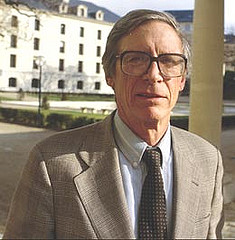
The Optimistic Agonist: An interview with Bonnie Honig
[The political theorist Bonnie Honig talks to IPPR’s Juncture about the roots of her thinking, the radical and positive potential of political contestation and the importance of ‘public things’ in a vibrant democracy.]
Nick Pearce: What’s noticeable about your work is that you have an engagement with continental theory which isn’t typical of Anglo-Saxon political philosophy. Where does that come from?
Bonnie Honig: In the mid to late ‘80s I was in graduate school at John Hopkins University, where French theory was quite central to the humanities and the humanistic social sciences. Reading in that literature you take on board some of its conceptual apparatus, even if you are establishing your own relationship with it. So certain terms, like interpellation and discipline and normalisation, entered into my own vocabulary.
The words stood for ideas I needed to draw on. If I blend analytic and continental archives, it was because I was driven to do so by my work on Hannah Arendt.

A democratic case for the free market?
Democracy is morally prior to the economy. The structure of the economy is something a sovereign people may and should design and redesign to secure its common good – that is, the shared interest of each and every citizen in life, liberty and economic opportunity. This is the basic premise of the ‘Democratic Wealth’ series that I have the pleasure of editing. This is, however, by no means an uncontroversial premise.

Rawls on Wall Street: comparing his theory of justice to economic liberal theory
In terms of the financial crisis, there are fascinating links between the Rawlsian theory of justice and the economic liberal theory which has drawn criticsm for failing to predict the crash. For Rawlsian adepts: this is not an attempt to apply Rawls’ theory of justice to explain the current economic crisis. It would not be suited to do so and neither was it designed to do so. But highlighting these links may teach us a thing or two about both endeavours and also give us pause about the Rawlsian project itself. Much (too much?) has been written about Rawls, both in defense of his project and against it. Those in disagreement generally use one of two strategies: attack the …









